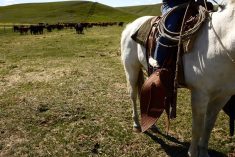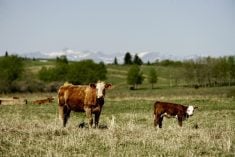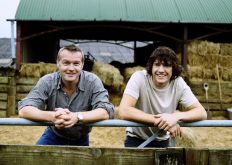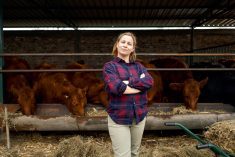The other day when trying to determine price insurance coverage for grass yearlings, we received a text from our buyer: “This is not for the faint of heart.” This caused me to reflect on non-ag businesses who, from my perspective, do not seem to have to deal with so many variables beyond their control. However, this may be a false assumption I would like to explore more.
As I write this, many producers in Western Canada are dealing with drought, high input costs, and, even worse, out-of-control wildfires. I recently came across the field of positive psychology. One of the founders of the concept, Martin Seligman, describes it as the study of positive emotions and the strengths that enable individuals and communities to thrive.

The components of positive psychology are:
- P – Positive emotion
- E – Engagement
- R – Positive relationships
- M – Meaning
- A – Accomplishment and achievements
In more detail, Seligman says there are seven habits of people who commonly rate higher in happiness. They are relationships, acts of kindness, physical well-being, flow, spiritual well-being and engagement, signature strengths and positive mindset. Much overlap occurs but I think there are opportunities unique to us in our agriculture operations. We can adapt our operations to take advantage of our strengths.
Read Also
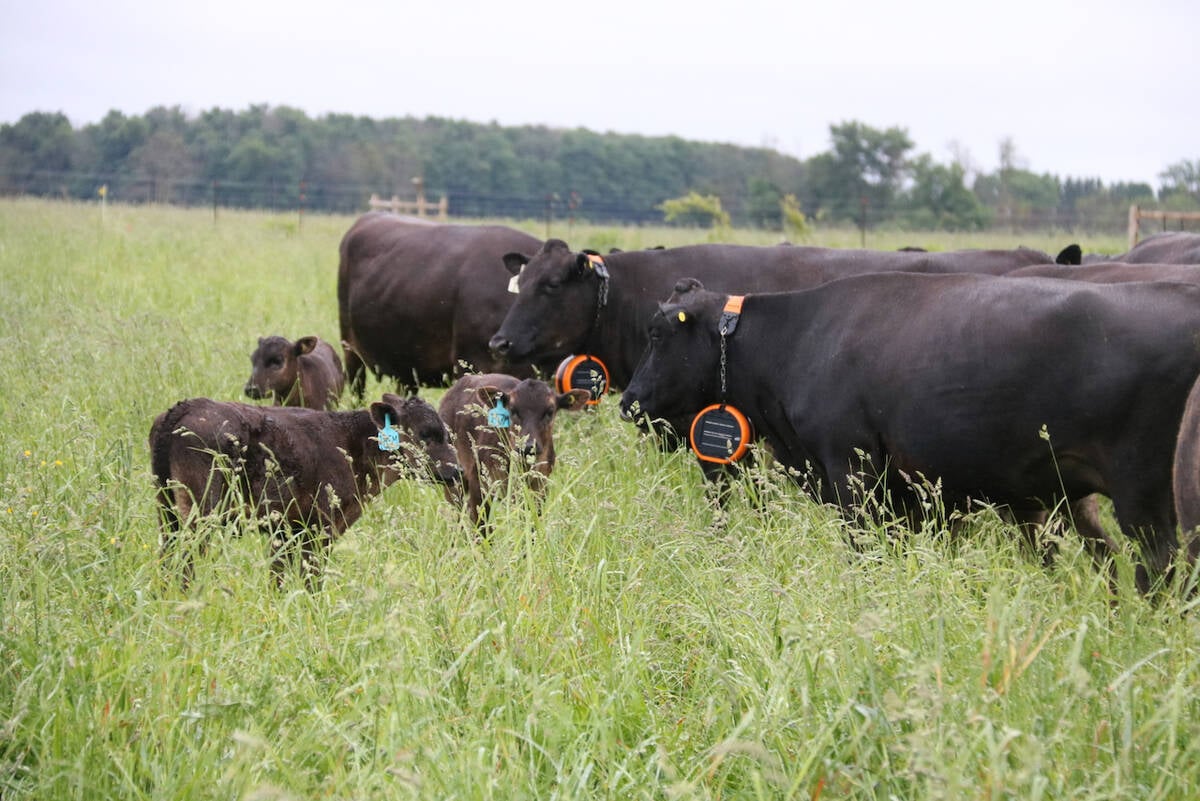
Connecting marbling scores in Japanese and Canadian grading systems
Research into whether Canadian marbling scores can predict Japanese marbling scores
This certainly applies as we transition to the next generation. Some of the areas in which a father does well may not be his daughter’s strengths. If an operation relies on the marketing and promotional abilities of a founder, it will need to adapt if the succeeding generation does not have someone strong in those areas.
The SPIRE model is a framework that integrates the areas of spiritual, physical, intellectual, relationship and emotional into financial decisions. Judith Oppenheim, a certified happiness trainer, teaches people about this framework to incorporate into their daily lives. SPIRE is similar to the Wheel of Life exercises with those same (or sometimes adapted) categories, arranged in a pie diagram. For this exercise, you rate how you are doing in each area. It can be a telling experience to discover if yours is a relatively balanced wheel or some type of strange geometric shape. What areas do you need to work on strengthening?
Another expert in the field, Dr. Loretta Breuning, founder of the Inner Mammal Institute and author of Habits of a Happy Brain, relates our expectations to the previously developed neuro pathways in our brains. When outcomes exceed expectations, we receive a dose of the feel-good hormone dopamine. But when the opposite occurs, we receive a dose of the stress hormone cortisol.
The good news is we can change the pathways with repeated behaviours and actions. Reflecting on the challenging years of drought and BSE and subsequent financial losses, we might conclude one can’t make money in the cattle business. But this is not the best move. Instead, thinking if we made it through those tough times, we can certainly make it through these ones too is a better option. Being intentional about past successes and sharing them can be helpful for both you and other team members.
As I have mentioned in previous columns, challenging our paradigms is an integral part of holistic management. Again, paradigms are not bad or good but we need to see if there are beliefs we operate under that are no longer serving us. Hal Elrod, author of Miracle Morning, recently shared on a podcast that as humans we have the belief that when good things happen in our lives we can feel good and when bad things happen we need to feel bad. So true. What if we could look at a poor business decision not as a mistake we must feel bad about but as an immense opportunity to learn and do better next time? Get excited about the future possibilities.
Many experts in the positive psychology field stress the importance of some kind of gratitude practice. Think of three things each day you are grateful for. One can even consider something that elicits a deep-seated emotional response. Think of events that cause you to feel awe. An inspiring sunset or sunrise can be envisioned by anyone reading this column.
Another recommendation that often comes up is connecting with nature, something we can do simply and easily. But there may be a paradox for us producers as nature can bring along with it some major challenges.
Feeling supported by those around you is huge. There is great value in management or learning groups to navigate some of life’s tougher challenges.
Sometimes it is not as simple as changing your thoughts. With the more recent focus on mental health in ag, a new entity has emerged which aims to provide support as well as tools for recovery. Agknow.ca has pulled together a group of professionals in Alberta familiar with agriculture. They are also providing links where people can get immediate referrals to help.
As the saying goes, you have survived 100 per cent of the hard days before now.




